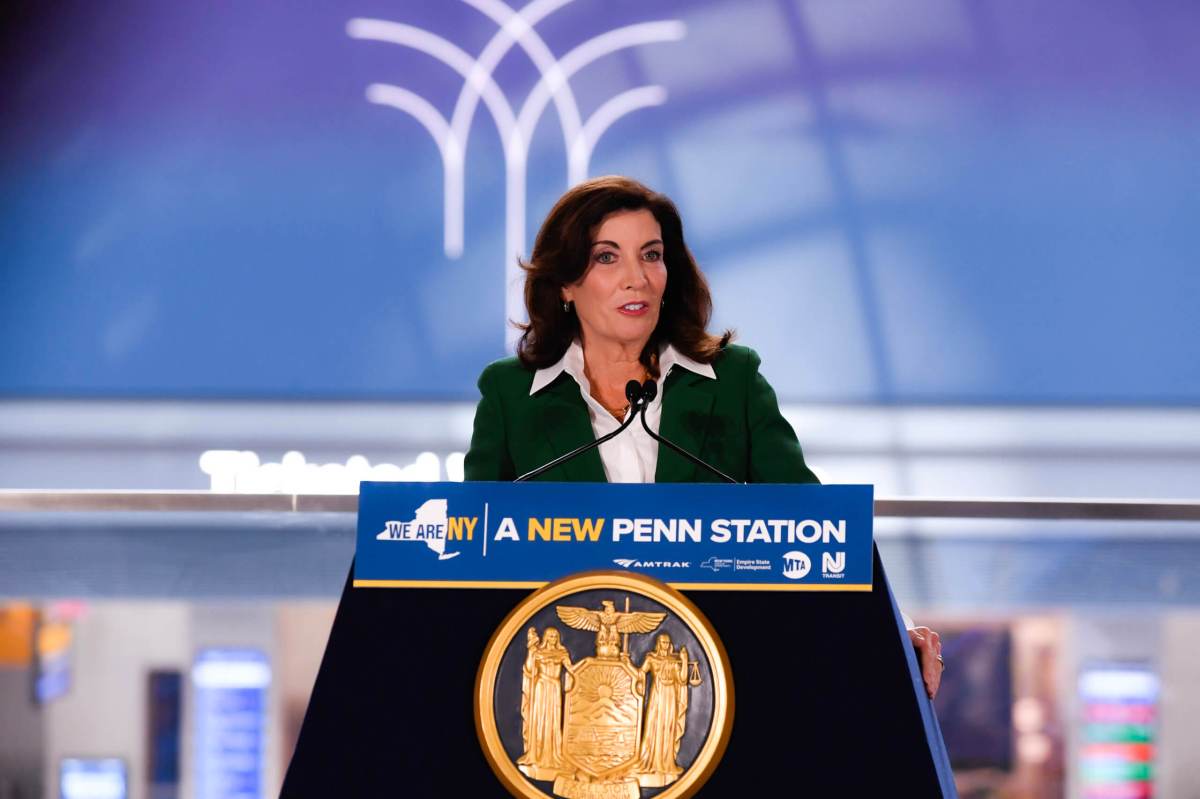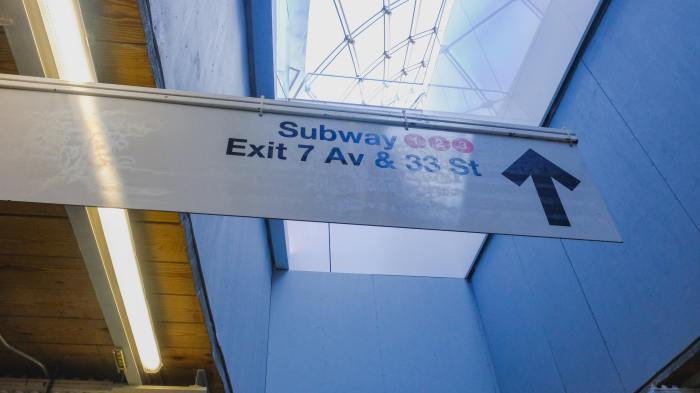Good government groups are calling on Governor Kathy Hochul to sign a pair of bills that would bring more transparency and checks to massive state projects like the controversial Penn Station redevelopment deal.
The governor should give her John Hancock for the two proposed laws that passed both houses of the State Legislature, and aim to shed more light on community negotiations around such projects and give state legislators increased independence to veto the schemes, according to a letter published Wednesday.
“These bills are common-sense measures that will ensure that the public and legislature have the information and tools necessary to evaluate and consider economic development projects, which can cost tens of billions of dollars,” reads the July 7 missive signed by nearly two dozen advocacy organizations, including Reinvent Albany, Citizens Union, and Common Cause New York.
The first piece of legislation would require the state to make public its meetings and materials for so-called community advisory committees, or CACs. The committees usually include local politicians, community board representatives, and advocates whom public authorities brief on a state project.
In the case of the massive Penn Station deal — which proposes to use proceeds from 10 new commercial and residential towers to fund upgrades of the beleaguered train hub — the Empire State Development Corporation, the authority in charge, held info sessions with a CAC behind closed doors and put its members on a “gag order,” the advocates charge.
“This process was extremely secretive,” said Rachael Fauss, a senior research analyst at Reinvent Albany. “Members of these community advisory committees were essentially put on a gag order and told that they couldn’t share any of the materials, and anything that was discussed was confidential.”
Reinvent Albany had to obtain presentation materials through Freedom of Information Law requests, and the documents revealed that the state intended to use a scheme whereby developers could forego city property taxes and make so-called payments in lieu of taxes, or PILOTs, to fund the station rehab.
Lawmakers have warned that taxpayers could be on the hook to cough up the difference if the big builders don’t make enough returns, especially given the slow rebound of offices in Midtown and other central business districts more than two years into the pandemic.
The meetings can also be used by the state to secretly appease local opposition by offering sweeteners, said Fauss, who added that the talks should be open to the broader public, not merely handpicked representatives.
“You could take it from the, you know, get the feedback of the community make the plan better perspective, or you could also look at it from the perspective of, is the state trying to buy off certain groups and get their support behind closed doors,” she said.
“The state selects who the community is and it shouldn’t be that way,” she added.
The second proposed law would give more independence to members of the obscure panel known as the Public Authorities Control Board.
The PACB has representatives from the governor, the state senate, and assembly, who vote to sign off on state projects like Penn Station. The votes have to be unanimous for a scheme to go through.
The little-known board threatened to derail the state’s deal to let e-commerce giant Amazon build a second headquarters in Long Island City, Queens, in 2019, when state Senator Michael Gianaris, an opponent of the project, was recommended to rep the upper house on the PACB.
Amazon pulled out of the deal in February 2019 before a vote could happen, and Governor Andrew Cuomo included a provision in the state budget later that year allowing him to boot members of the PACB if they opposed a project for reasons other than its financing, which opponents said quashed dissent.
The bill would undo that Cuomo-era provision and allow the lawmakers more freedom to vote against a project such as Penn Station (something Reinvent Albany has urged pols to do) without fear of being kicked off the board.
“The PACB still has the authority to reject the Penn Station project,” said Fauss, “But what this would do is it would make it much more clear that the representatives on this body can act independently without fear of retribution.”
When Hochul took over the governor’s office after Cuomo’s resignation last year, she pledged to usher in a “new era of greater transparency and accountability” in Albany.
The governor will review the legislation, her spokesperson Hazel Crampton-Hays told amNewYork Metro.





































